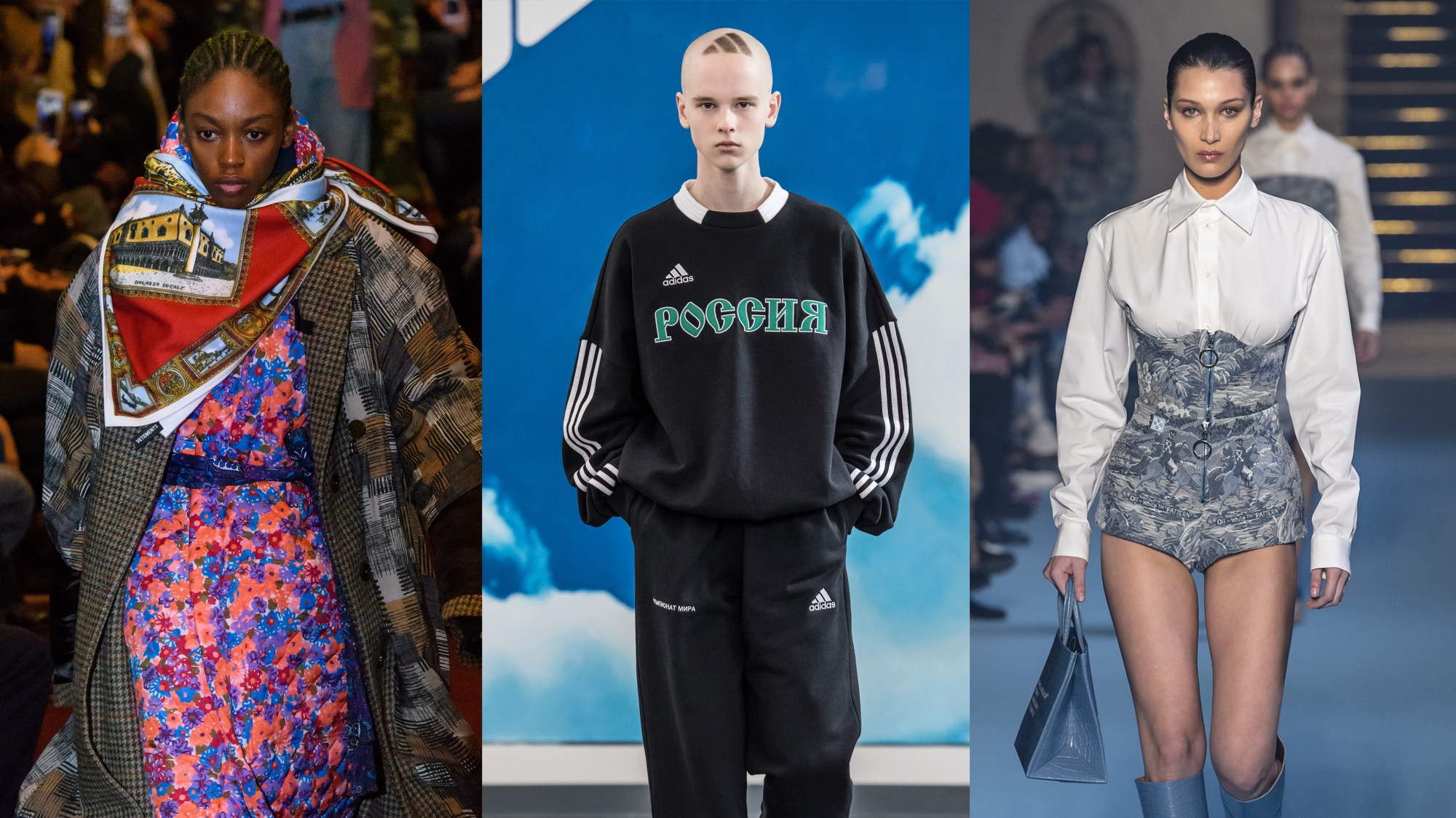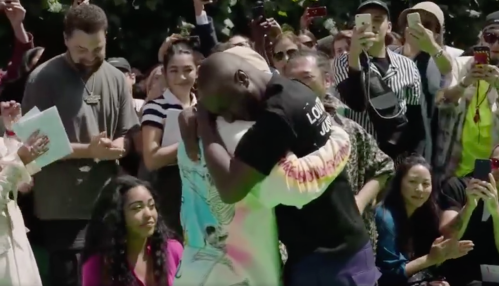It was one of those weeks: a swirling, shambling crescendo of fashion news, clapbacks, surprise announcements, and scathing State of the Streetwear Nation hot takes. Virgil Abloh ascends to head of Louis Vuitton menswear. Gosha Rubchinskiy announces the end of Gosha as you know it. Highsnobiety asks if anyone is actually buying Vetements anymore. The three stories, taken together, feel indicative of the tangle the fashion industry is in right now. A big knot forming around the intersection between streetwear and high fashion. But there’s a lot to be learned from prying apart these various threads. Where we are, where we’ve been, where we might be going.
Virgil Abloh taking over from Kim Jones as the creative director of Louis Vuitton’s menswear line had been a badly kept secret in fashion circles for a few months. It feels like a Very Important Milestone on the dual carriageway of fashion and streetwear. Even if we aren’t quite sure where the road is going to take us yet, it’s just good to be on the road, Virgil behind the wheel.
The outpouring of congratulatory sentiment at the news reflected how well respected Virgil has come to be. It’s a great moment, especially considering the naysayers he’s faced down and overcome. It’s symptomatic of the fact that the more closed-minded elements of the old fashion establishment are finally ready to make peace with the new world. LV must be applauded for such a brave and exciting decision, the impact of which will reverberate. Now begins the countdown to the first show, to see exactly what this very modern designer will do at the storied fashion house.
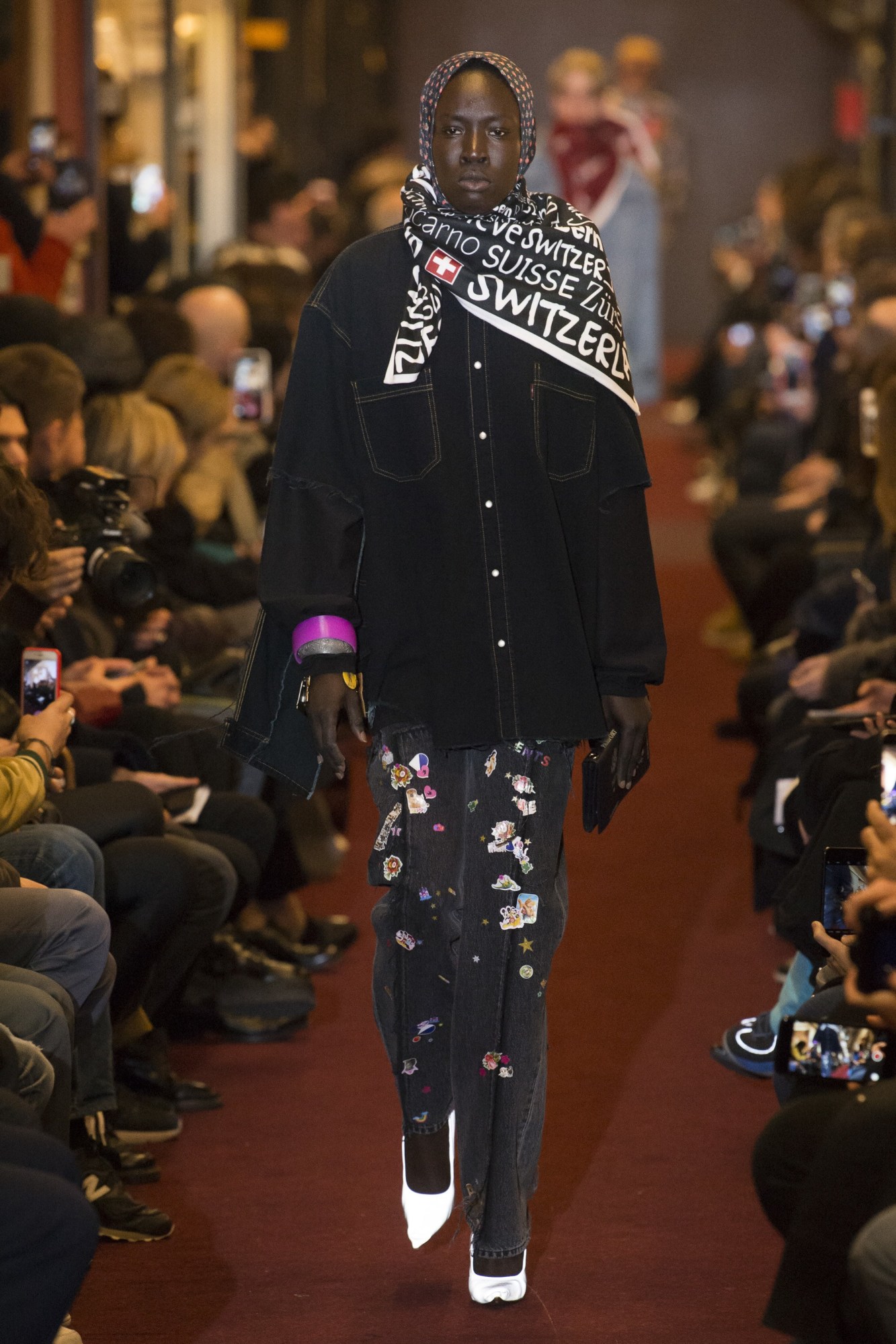
If Virgil going to LV was a moment of blissed out fashion x streetwear celebration, the Vetements vs Journalism farago reflected less well on everyone involved. Since the beginning, Vetements has drawn equal amounts of opprobrium and adoration. It’s an opinion divider and an opinion creator, either a fashion revolution or a fashion joke. Vetements has always got column inches, that’s not the story. Here the story centred as much on Vetements’ reaction as the actual article. Depending on which side of the fence you’ve casually planted your flag, the Highsnobiety article represents either the death of the streetwear brand, the death of the streetwear/fashion love-in, or the death of streetwear journalism… or just a big nothingy whatever in a slow news cycle.
More surprising was Gosha Rubchinskiy abruptly announcing via his Instagram that his brand was ending as you know it, and that he was going to try something different within the fashion industry. This roughly translates as: no more seasonal shows and seasonal collections, maybe moving away from the fashion week schedule and possibly towards something more streetwear in its economics and immediacy. More collabs, opening a standalone store in Moscow, freeing himself from the strictures of spring/summer autumn/winter.
Of course the whole ‘seasonal fashion week isn’t working’ thing has been the elephant in the room for a while now; often ignored, always present, occasionally dealt with in a half-arsed manner. No one really has come up with a workable solution to get the elephant out of the room. This hand-wringing, soul-searching quest for a way to make the slow luxury of fashion compete in the sped up streetwear world of weekly drops, frothing hype and endless collabs provides the backdrop for all this.
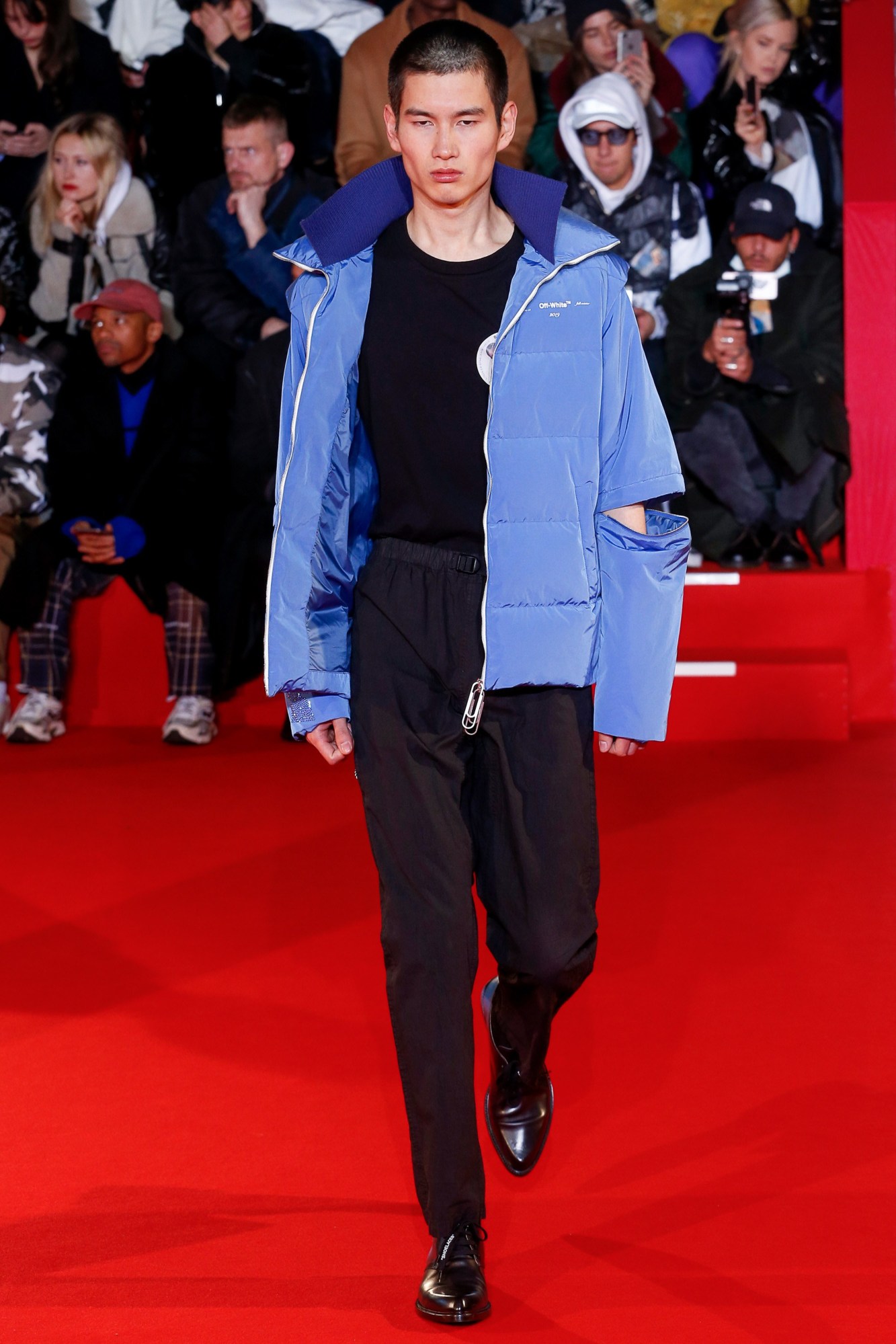
Because between these three news stories there’s something indicative of the changing relationships between the streetwear world and the luxury fashion industry. They have each coveted and distrusted the other in equal measure. Streetwear wants the credibility, authority and respect of the fashion industry. Fashion wants the easy energy, vitality and youthful relevance of streetwear. These distinctions have mattered less and less recently: fashion has been drawing inspiration from streetwear’s aesthetics for a few seasons now. Streetwear has increasingly been moving in fashion’s world. But the recent turmoil and tumult suggests we are maybe moving beyond this, old barriers breaking down, or, at least, new routes are being plotted around them. Demna, Gosha and Virgil have been leading this disruption. Arriving at roughly the same place — where street and catwalk meet — even if they came there via wildly different journeys.
Whether you buy the rumours of no one buying Vetements anymore, or of Demna using his best ideas for Balenciaga, you can’t deny the huge impact the brand has had on the entire industry of clothing. With Vetements, he broke the doors down and created a new feeling in fashion. Much of our current aesthetic mood can be traced back to his work. Nothing is forever in fashion though, so at some point, yes, Vetements is no longer going to be Where It’s At. And the Highsnobiety article did pinpoint something — Vetements’ prohibitive pricing prevents many from accessing the brands — but missed a wider point: the brand still feels a step ahead of the rest. That’s the reason they feel they can charge those kind of prices.
The thrust of the Highsnobiety article seemed to say that creatively and economically Vetements has peaked. Whatever your personal opinions, the denial by Guram and Demna, only increased the reach and impact of the article. Fighting fire with fire never put out a fire. That it caused such a stir is indicative of how little critical, constructive, opinionated discourse there actually is the fashion industry: was everyone talking about the article because no one ever really says anything? Does it say something that Highsnobiety – an avowedly streetwear publication – did this story, rather than Vogue? Rather than BoF? The attack and rebuttals highlight the queasy and uneasy relationship of deference between fashion brands and fashion press.
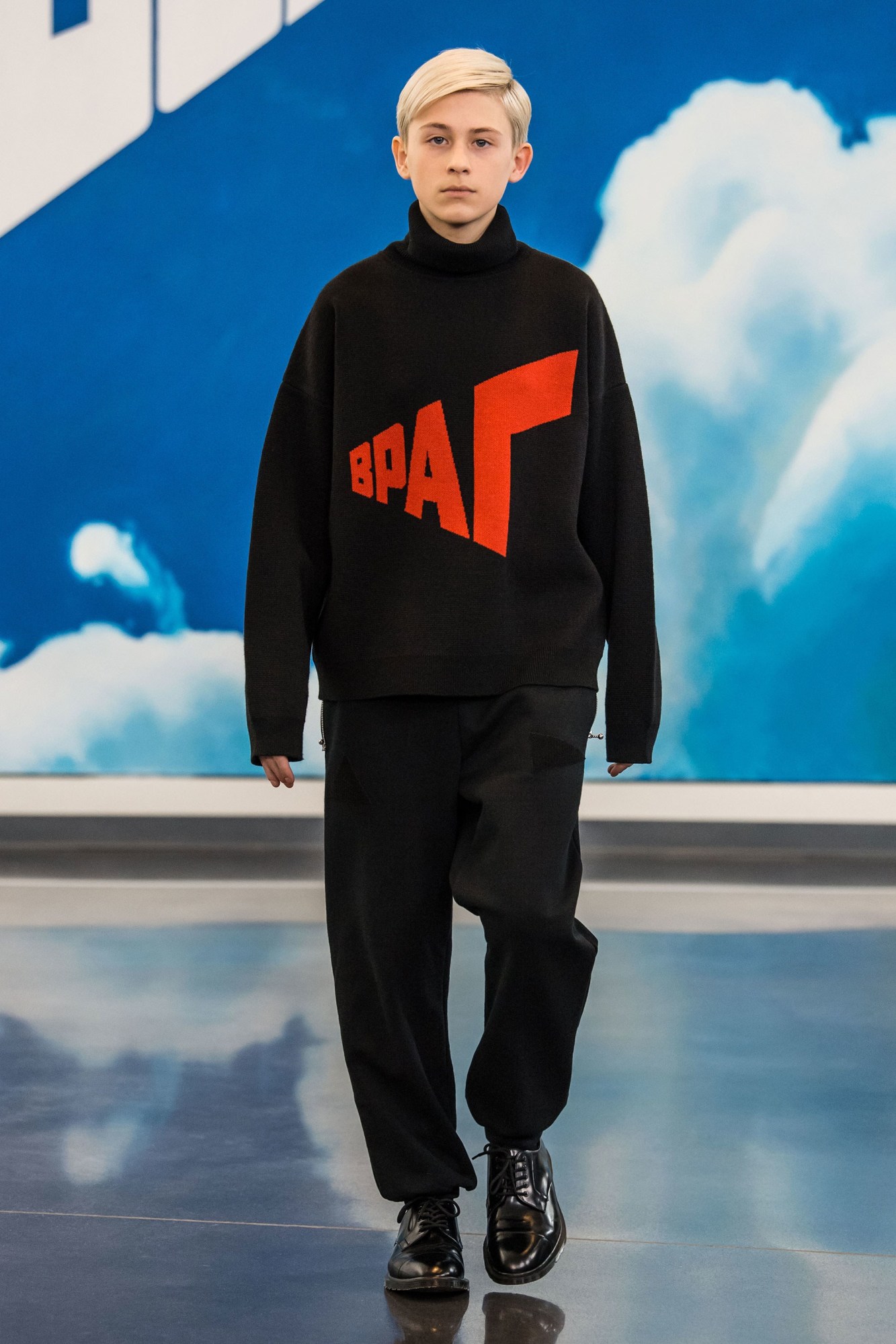
Conversely, Virgil has had a fawning relationship with the streetwear press, and a more turbulent one with the fashion world, who’ve often been critical of elements of his collections. But there is a fascination with Virgil and his popularity, a desire to understand the way what he does speak to people, how his brand communicates so effectively with the masses. The things he’s good at are very modern things, very indicative of where fashion is at right now. He is not so much a designer as a creative director, a recalibrator of ideas and influences, a lifestyle branding guru. Much of the stick he’s got from fashion snobs is that the references are too obvious for their delicate tastes — too much Lang, too much Raf — and there’s a reluctance to fully accept Off-White as fashion — as opposed to streetwear — from the more staid elements of the fashion press. A refusal too, to accept that these distinctions matter less and less.
Yet, undeniably, his ascension to lead the Louis Vuitton menswear division feels like a defining moment; this self-taught, fashion-industry-outsider, at the top of the pile. But what does it mean for Off-White? For streetwear? He’s resolutely positioned the Off-White not as streetwear, of course, but Fashion. Equally, he’s been streetwear’s champion in the fashion sphere. The proof that you can make it. You can do it. You can dream it. Will he have the same revolutionary appeal as the head of the oldest and grandest of houses?
So on the one hand, we have the bearers of the streetwear aesthetic in high fashion being denigrated by the streetwear press; on the other hand the streetwear world’s torchbearer in high fashion finally being accepted by it. The relationship at the moment feels very precarious and unstable. Gosha’s decision to consciously uncouple from the fashion schedule, in some form, only complicates matters.
He’d already gone some way to it, heading off on a homecoming tour of Russia for the last three seasons. But does Gosha’s abscondment mean he longer seeks the tacit approval of the fashion system to consider his brand a success? Like Virgil, Gosha is untrained as a designer, but a genius in terms of world-building, of creating fashions that reflect his reality. It’s on his own terms that he’s been accepted and lauded. And it seems to be on his own terms that he’s stepping back.
If we’re lacking some defining point, some transcendent revelation, some clarity amongst the melee, well it is only because we are yet to see where these pieces will fall. What is undeniable is that the precariously conjoined mutually beneficial relationship between fashion and streetwear is in flux. It’s hard to predict what the state of it all will be in another six months, once everything has settled.
